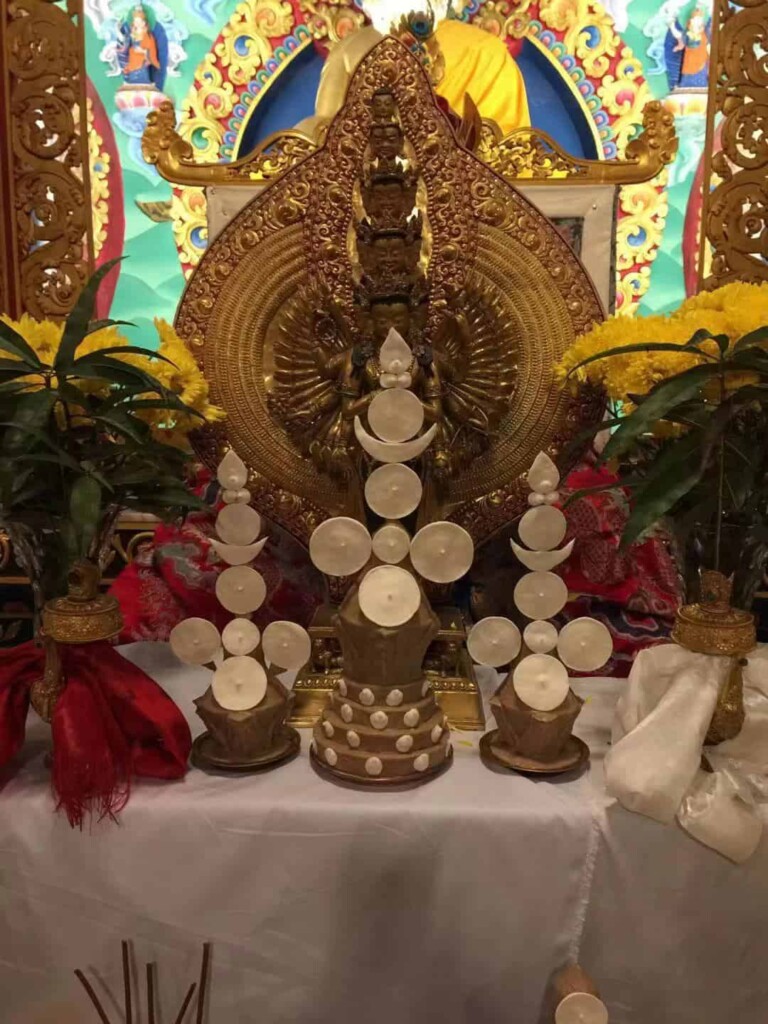Nyungné is a fasting ritual practice from the Kriya Tantra collection focused on the 1000-armed Avalokiteshvara. This practice helps to purify negative karma and to develop great compassion in a swift way. The Tibetan term Nyungné translates as “abiding in sickness” and has been traced back to a nun, Bhikṣuṇī Pelmo, over a thousand years ago. Some scholars identify her as Princess Lakṣmīkara of Oḍḍiyana. After she became a renunciate, she contracted leprosy, which she was able to cure through a discipline of Avalokiteshvara practice and the recitation of melodious mantras. The practice has remained popular and spread widely through the Himalayas. Because it is often completed in two-and-a-half days, it serves as a powerful purification method for those who do not have time for longer retreats.
Practitioners renounce food, drink, and speech every other day. In addition, they practice a sadhana of Avalokiteshvara involving recitation, visualization, meditation, and prostrations. While engaging in this sadhana, we receive blessings to support the body as well as insight into the wisdom and love of the embodiment of compassion, the deity Avalokiteshvara.
The fasting practice is a swift method of giving rise to compassion for sentient beings. Many beings within the six realms suffer greatly from a lack of food and water. As we call them to mind, the practitioner can observe their own habitual patterns of greed and attachment. The practice encourages the development of contentment, gratitude, and mindfulness.
When practiced together, fasting and meditation have a purifying effect on the body and mind. This purification allows innate clarity to manifest. In breaking with habitual patterns of daily behavior, the practitioner creates the space for new, more wholesome habits to unfold.



